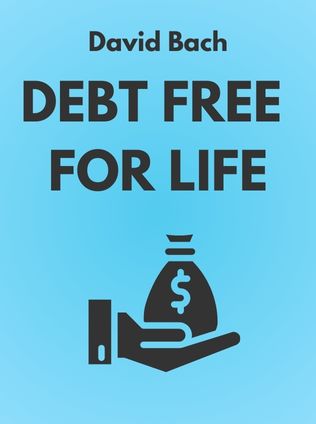
Debt Free for Life
The Finish Rich Plan For Financial Freedom
By David Bach
Published 02/2011
About the Author
David Bach is a renowned financial expert, best-selling author, and motivational speaker. He is widely recognized for his practical advice on personal finance, debt reduction, and wealth-building strategies. Bach has dedicated his career to helping individuals achieve financial freedom and live debt-free lives through his books, seminars, and media appearances. His approachable and inspirational style has made him a trusted advisor to millions seeking to improve their financial well-being.
Main Idea
At one time, it was possible to distinguish between "good" debt and "bad" debt. However, the recession has changed that thinking. Today, the best investment you can make over the next five years is to pay off all your debts and stay completely debt-free. To stay debt-free for life, you’ll need to combine having the right mindset with applying appropriate strategies. Both your mindset and the actions you take will determine whether or not you become debt-free and then stay that way.
Table of Contents
- The Debt-Free Mindset - Pages 2-3
- The Debt-Free Strategies - Pages 4-8
The Debt-Free Mindset
The first stage in getting out of debt and staying out of debt is to get your thinking right – to have the right mindset about debt. Pure and simple, the less debt you have, the more free you will feel and the greater your peace of mind will be. To get the debt-free mindset, consider these steps:
Understand Why You’re in Debt Today
Debt often accumulates due to a variety of reasons such as lifestyle choices, unexpected emergencies, or lack of financial education. It is crucial to understand the root causes of your debt to develop effective strategies for overcoming it. Reflect on your spending habits, income stability, and the impact of external factors.
Stop Digging the Hole
Once you recognize the reasons behind your debt, the next step is to stop accumulating more debt. This means halting the use of credit cards, avoiding new loans, and living within your means. It’s essential to resist the temptation of spending beyond your financial capacity.
“The truth is we’ve been misled by billions of dollars’ worth of advertising that gets us to buy things we don’t really need. We were sold a bill of goods – or, more accurately, a bill of loans (trillions of dollars of them). And now this bill has come due, and our debt has become our personal financial prison.” – David Bach
Get Compound Interest Working for You
Understanding compound interest is vital in your journey to becoming debt-free. Compound interest can work against you when you owe money, but it can also work for you when you save and invest. By paying off high-interest debts first and saving consistently, you can harness the power of compound interest to your advantage.
- Credit Card Example: Suppose you borrow $5,000 on a credit card with a 29% interest rate. By making minimum monthly payments, it will take you 23 years to get out of debt and you’ll pay $10,505 in interest. However, by adding just $10 a day to your payments, you’d pay off the debt in 45 months and save more than $7,300 in interest.
- Mortgage Example: If you borrow $200,000 to buy a home with a 30-year fixed mortgage at 6% annual interest, your monthly payment will be $1,199. Over 30 years, you will repay $431,676, including $231,676 in interest. By adding an extra $10 a day to your payments, you can pay off the loan in 18 years and save $101,000 in interest.
Take the Debt-Free Pledge
Committing to a debt-free lifestyle requires a firm pledge to yourself. Answer these questions to prepare for the debt-free pledge:
Sign up for FREE and get access to 1,400+ books summaries.
You May Also Like
The Subtle Art of Not Giving a F*ck
A Counterintuitive Approach to Living a Good Life
By Mark MansonRich Dad Poor Dad
What the Rich Teach Their Kids About Money - That the Poor and Middle Class Do Not!
By Robert T. KiyosakiHow To Win Friends and Influence People
The All-Time Classic Manual Of People Skills
By Dale CarnegieFreakonomics
A Rogue Economist Explores the Hidden Side of Everything
By Steven D. Levitt and Stephen J. Dubner



















